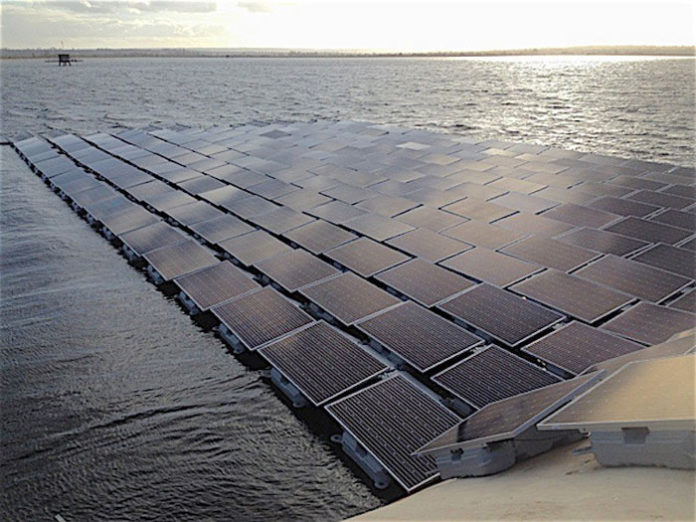During the industrial boom of the recent decades in China, the problem of improving environmental standards in the production of electricity has become sharp. There has been a need for new technologies of energy production based on renewable sources. China adopted a state program on the use of alternative energy sources to prevent emissions from conventional energy based on burning fossil fuels.
As a result of governmental regulations, Sungrow Power Supply Co was launched – the most powerful floating solar power plant near the city of Huainan (Anhui province). The location of the station on the site of the flooded coal mine is also symbolic. Fuel for thermal power plants used to be produced here, and it contaminated the country’s ecosystem.
The capacity of the new floating power station is 40 MW, twice more than the station presented last year. The popularity of solar power plants on the water surface is due to the many favorable factors and the peculiarities of its construction. In the first place, it helps to eliminate the problem of land allocation for a huge solar power plants. Also, the presence of panels above water surface helps to reduce evaporation, which is important in the current climate undergoing global warming. In addition, the presence of solar panels over the water with a lowe temperature promotes natural reduction of the working temperature of photovoltaic cells, which prolongs their service at no additional cost. The Chinese government is planning to increase the share of solar energy in the country’s energy consumption by 20% before 2020.







